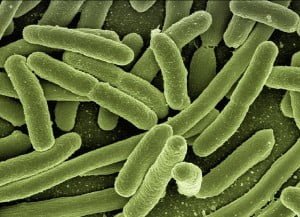
Gut Bacteria and Why You Should Care About It
If you want to boost your mood, control your weight and feel better, you may need to restore your gut health. Did you know that the bacteria in your gut are critical for emotional and physical well-being?
What is gut bacteria?
“I have bacteria in my gut?” you might ask. Yes you do! There’s a whole community of microorganisms that live in your digestive tract known as your microbiome. These “bugs” play a vital role in keeping you healthy by improving immunity, absorbing and creating nutrients, keeping out toxins and aiding in digestion.
In fact, the metabolic activity of your microbiome is so complex and vital this community of organisms is considered “the forgotten organ.” Your gut should house over 500 species of bacteria totaling around 3 pounds!
It’s important to have diverse types of gut flora. In fact, your make up of different gut bacteria can create a sort of “microbiome fingerprint.” This fingerprint can be associated with certain disease susceptibilities or health traits depending on it’s make up.
 What creates bad gut bacteria?
What creates bad gut bacteria?
Your gut bacteria can change according to your diet. Our American diet of highly processed, high sugar, high fat, high grain and low fiber foods has led us to have a less than ideal diversity of gut flora – contributing to obesity, diabetes, low immunity, cancer and even depression. With a poor diet, you can even throw off the balance of your gut flora where you have too many “bad bacteria” as well as yeast and parasites.
How can poor gut health affect me?
- Immunity – Did you know that over 70 percent of the cells that make up your immune system are housed within the walls of your small intestine?
- Leaky gut – Having poor balance of gut flora combined with inflammation can cause the walls of your small intestine to be more permeable allowing molecules and toxins to pass through. This turns up inflammatory and autoimmune pathways contributing to allergies, arthritis, cancer, Alzheimer’s, diabetes, chronic fatigue, cancer and any other autoimmune or chronic diseases of aging.
- Obesity – Having poor balance of gut bacteria causes insulin resistance and weight gain.
- Mood – Did you know that the nerve cells in the gut produce 95 percent of your serotonin? Serotonin helps you feel a sense of ease and contentment. Most antidepressants work to raise your serotonin levels. What if you could do that by keeping your gut healthy?
Think of your gut bacteria as your inner garden. You want the inner garden to flourish with healthy gut flora so you feed it whole fresh foods that allow the good bacteria to thrive. Remember, the bad bugs thrive from highly processed, high sugar, high grain food!
What leads to poor gut health?
- Unhealthy diet
- Stress
- Overgrowth of yeast, parasites and bad bacteria
- Toxins from our environment
- Medications, such as antibiotics, antacids and steroids
How can I improve my gut health?
The answer is simple. Starve the bad bacteria by eliminating junk and nurture the good bacteria with whole fresh foods! Increase fermented foods in your diet as well such as sauerkraut, kimchee and miso. Supplementing with Omega-3 fatty acids and a high-quality probiotic are also very helpful. We have a high-quality, affordable probiotic at our office. Ask me for details.
Now that you understand gut bacteria, make the effort to improve yours by eating right and taking care of yourself. Trust me; it will make you feel better on so many levels.


Write a Comment